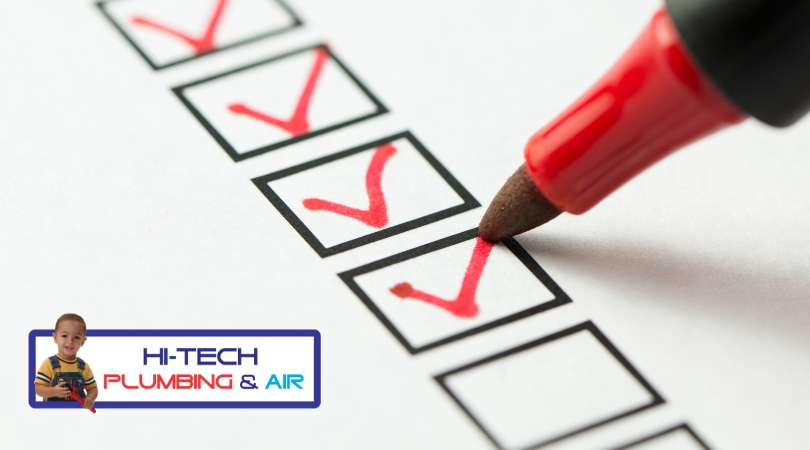If you’re a snowbird, you’re probably eager to retreat to cooler points north before temperatures begin to climb. But before you pack your bags, be sure your home is adequately prepared to sit unoccupied for the long, humid summer.

Follow this checklist to ensure you won’t find any unpleasant surprises when you return to your West Palm Beach home come winter.
Fortify Your Home Against Mold and Mildew
The Sunshine State’s notoriously muggy conditions can wreak havoc on a home. Heavy, stagnant air can foster microbial growth, which can be a real health risk, and excess moisture can cause wood cabinets and furniture to swell and metal fixtures to rust. Air conditioning has a big role to play in the fight against moisture damage. That’s why we recommend the following:
- Get your AC system tuned up. Spring is the perfect time to schedule a maintenance check-up. After all, your A/C system has a big job ahead of it in the coming months and you’ll want to be sure it’s up to the task. Our technicians will thoroughly inspect your system to ensure that it is in good working order.
- Schedule your system to run periodically. One approach is to set the air conditioner to 80 degrees and your dehumidifier to 45 degrees, ensuring a steady flow of fresh air throughout the home. But if you have a programmable thermostat, you can save on energy costs by scheduling the AC to run at 72 degrees for a couple hours before sunrise and around 85 degrees throughout the day. Another advantage of a smart thermostat is that you can keep an eye on the temperature in your home remotely. If you notice any irregularities, you can call a professional, like us, to check on it.
- Change your AC filter. Coupled with humidity, a dirty filter can breed mold and mildew — stuff you don’t want to breathe in.
- Open all doors, closets and cabinets to allow air to circulate throughout the house.
- Close all curtains and blinds to keep the heat out (and peepers from seeing that no one is home.)
Prep for Storms
Hurricane season begins in June. Be sure your home will be able to withstand high winds and torrential rains.
- Check your storm shutters to ensure they’re in good working order. We recommend having a friend or trusted neighbor who can put on the panels in the days or hours prior to a storm. The alternative is to shutter your windows before you leave, but then your home looks unoccupied for a long stretch of time, which could attract burglars.
- Seal around windows with weather-resistant caulk.
- Add new weather stripping around doors if needed.
- Inspect the exterior of the home and repair any cracks in the stucco.
- Clean the gutters.
- Bring in anything that can blow away in high winds, i.e. patio furniture, welcome mats, rugs, wind chimes, hanging plants, barbecue grills, trash cans, etc.
- Cut down any branches that can snap up in high winds.
Secure Your Home
Like moths to a flame, burglars are drawn to homes that appear vacant. Of course, you’re going to lock your doors, windows, sliding glass doors and pet doors, and you likely have a security system in place, but there are additional precautions you can take.
- We recommend programmable light timers. Scheduling a lamp to turn on in the evening could help ward off intruders. Even better: program multiple lights to switch on at different times throughout the house.
- Ask your neighbors to keep an eye on your home. Let them know how long you’ll be gone and provide your contact information. To further the illusion of an occupied home, ask if they’d be willing to park in your driveway periodically.
- Forward your mail to your off-season home and put newspaper deliveries on hold. A stuffed mailbox and rolls of newspapers on the driveway signals an empty home.
- Turn on motion sensor lights. Flood lamps that trigger the moment someone steps on your driveway can be an effective deterrent.
- Install a Ring or similar device. A digital doorbell will show you who is knocking at your door and allow you to communicate with them even if you’re 1,500 miles away.
Unplug appliances, turn off water
Electrical storms can wipe out appliances. Sure, you can have them on surge protectors, but there is no sense running up a big electrical bill while you’re gone.
- Unplug all appliances. (Of course, you’ll want to empty and thoroughly clean the refrigerator first.) This includes even small appliances like a toaster — the exception being any lamps plugged into timers. Unplug the TV, cable box, Blu-ray player and modem and disconnect from the coax cable. While you’re at it, notify your cable and internet provider to put service on hold.
- Check the garage, too. Unplug the garage door opener and the hot water heater.
- Turn off the main line and then run the faucets in the kitchen and bathrooms until they run dry. Flush the toilets and turn off the water to each at the base.
That should do it. We hope you come back to your West Palm Beach home just as clean and secure as you left it.

